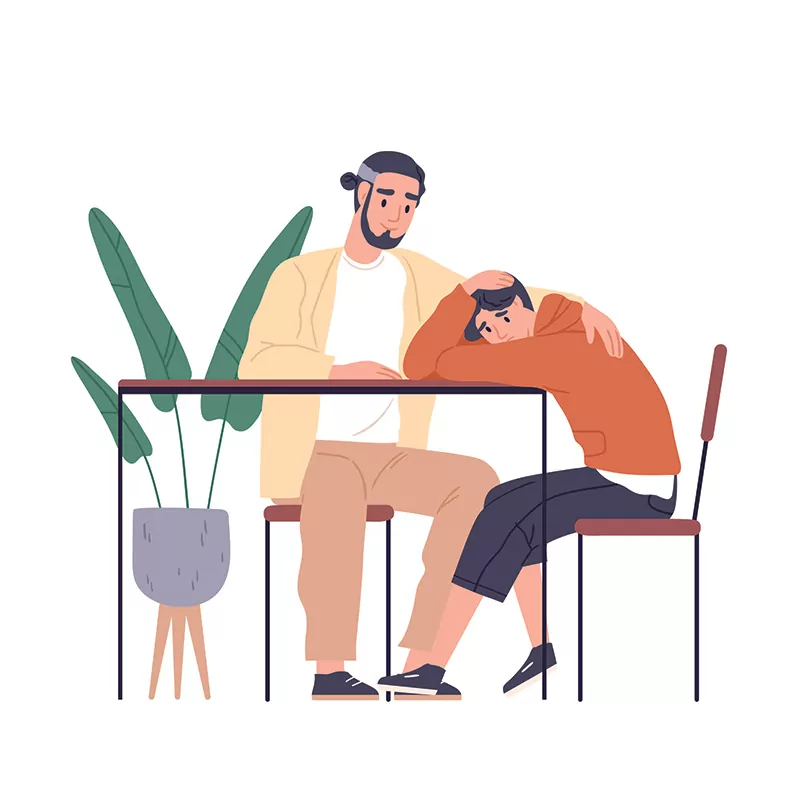Alcohol use disorder (AUD), commonly called alcoholism, is often called a “family disease” because it affects the entire family, not just the individual struggling with alcohol dependence. Addiction happens in all types of families, and its emotional side effects are felt by spouses, children, and other extended family members. Their family life, behaviors, and attitudes can change forever as a result of the disease, especially when there’s a family history of alcohol misuse. They can even experience anxiety, depression, and shame as a result of alcohol addiction. The effects of alcoholism on a home can lead to disruptive behavior, tension, and strained relationships, causing significant stress on the family unit.
It’s common for couples to develop similar drinking habits together. According to the University of Buffalo’s Clinical and Research Institute on Addiction, both husbands and wives regularly drink alcohol in roughly half of all couples. Moderate alcohol use may have few negative consequences, but heavy drinking that leads to alcoholism often creates family dysfunction and disrupts intimate relationships in many ways, including:
Most people who abuse alcohol don’t abuse their partners, but a large proportion of people who abuse their partners also abuse alcohol. One of alcohol’s side effects is that it increases the likelihood of misunderstanding other people’s behavior or motives. As a result, it can cause some people to feel that their violence is a justifiable response. It’s important to remember that being intoxicated or having AUD does not absolve a person from their negative actions and violence is never excusable.
Growing up in a household with alcohol abuse has complicated, lifelong effects on children’s emotional development and emotional health. It changes their perceptions of themselves, as well as their relationships with their family and others. Children raised by a parent or caregiver with a substance abuse problem may experience complicated and conflicting emotions, including:
Beyond the emotional distress, there are other signs that can indicate a child is experiencing a stressful situation at home due to alcoholism. Relatives, teachers, and other adults or friends may notice behavior or personality changes, such as:
For many children, they have difficulty expressing their emotions about how addiction impacts their lives. As a result, they learn to cope in a variety of ways. They may take on more responsibility, acting as a parental figure with their siblings and friends. They may become “overachievers” in school and extracurricular activities. For some, the unresolved feelings from childhood may lead to substance abuse or other mental health conditions in adulthood.
Witnessing a loved one struggle with alcohol use disorder can be stressful. It can be confusing or difficult to know how to help them with their struggle, especially if you are unsure when or how to start. Here are some steps you can take to get alcohol addiction help for your family.
Living in a home where alcohol use disorder is present can feel very tense, stressful, and chaotic. While you may feel like you are to blame for your family member’s alcohol addiction, remember, it is not your fault. Addiction is a disease and you alone are not responsible for causing it or making it stop.
Whether or not your loved one is in treatment for their addiction, don’t wait to start the healing process for yourself and others in the family. There are special groups and family therapy options designed specifically for families living with alcohol addiction that connect you with other families in the same situation and facing similar struggles. Together, you learn how to best support your loved one throughout their recovery and how to cope with your emotions related to the addiction.
As much as you want your family member’s addiction to stop, ultimately, it’s up to the person with alcohol addiction to seek treatment. But your actions can help break down the walls that addiction builds. Here are some approaches to take with your family member that can put them on a better path:
There are many types of alcohol addiction treatment programs and supportive resources available, depending on your loved one’s specific needs. Once your family member is in treatment for their alcohol addiction, some treatment programs offer family therapy, which can help you rebuild trust, communication, and stability. Some programs even provide community-based resources for families to help with any needs related to housing, employment, childcare, healthcare, and legal services.
As your loved one begins their recovery journey from alcoholism, some programs may involve family members in your loved one’s therapy. Together, the family unit learns how to better communicate with each other, while rebuilding bonds of trust and stability. Some programs may even provide community-based resources for families, such as housing, employment, childcare, healthcare, and legal services.
If you are seeking help with your loved one’s addiction, contact us today or complete our quick contact form below, to speak with an addiction treatment specialist.
If you need help with your substance use disorder, we are here to help you build your confidence and momentum towards the future you want. We provide treatment services for adults with alcohol, opioid, and other substance use disorders. Our services are in Florida, Illinois, Louisiana, Massachusetts, North Carolina, New Jersey, Ohio, Texas, and Washington.
 How to Talk to Your Child About Addiction: A Comprehensive Guide
How to Talk to Your Child About Addiction: A Comprehensive Guide
 Signs and Symptoms of Alcoholism – How to Know if Someone Has a Drinking Problem
Signs and Symptoms of Alcoholism – How to Know if Someone Has a Drinking Problem
 How Do I Know if I Have a Problem With Alcohol?
How Do I Know if I Have a Problem With Alcohol?